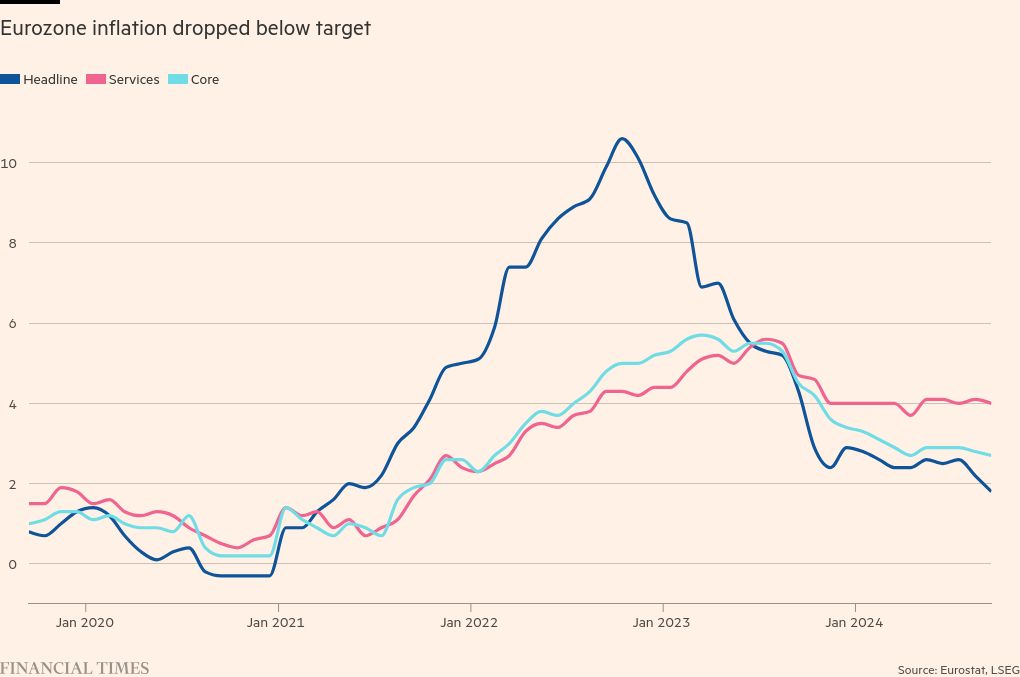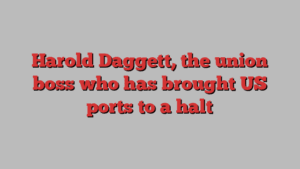
This article is an on-site version of our Europe Express newsletter. Premium subscribers can sign up here to get the newsletter delivered every weekday and Saturday morning. Standard subscribers can upgrade to Premium here, or explore all FT newsletters
Good morning. Iran fired around 180 missiles at Israel last night in response to the country’s ground invasion of Lebanon, in a significant esacalation that puts the Middle East on the brink of an all-out war.
Here, I preview the tepid welcome Britain’s prime minister could expect to receive today as he tours the Brussels leadership in an attempt to “reset” relations, and Laura reports on the slow progress towards swearing in the new commission.
Cherry-picking
Sir Keir Starmer comes to Brussels today for talks with EU officials on his proposed “reset” of relations with the UK, with European Commission president Ursula von der Leyen under strict orders from capitals not to let the British prime minister pick and choose what to focus on.
Context: The UK left the EU in 2020 after a slim majority of Brits voted to exit the bloc in a 2016 referendum. Four years of tortuous negotiations over the terms of the separation left much to be desired.
Starmer has pledged to improve the relationship, but has been vague about the key details of his proposals. At a meeting of member state ambassadors this week, some told von der Leyen’s representative not to allow Starmer to “cherry-pick” what he wants from Brussels, and not talk about the stuff the EU wants from him.
Some warned that the commission must be cautious about any new initiatives, pointing out that the UK had been clear on its “red lines” around issues they were unwilling to discuss, people briefed on the talks said.
Starmer has said he wants to “deliver ambitious and improved co-operation with EU leaders”, without specifying what that could entail.
“I am so determined to put the Brexit years behind us and establish a more pragmatic and mature relationship with the European Union,” he said yesterday, while ruling out a return to the bloc’s single market, customs union or rules allowing freedom of movement.
The EU wants to talk about fisheries and youth mobility, while the UK would rather focus on security and defence, migration and health issues, according to officials briefed on the preparations.
Aside from talks with von der Leyen, Starmer will also meet European Council president Charles Michel — who represents the bloc’s 27 national leaders — and European parliament president Roberta Metsola.
Officials on both sides of the English Channel mainly think that the symbolism of the meetings will be more important than any of the nitty-gritty discussed during them — if indeed there’s any at all.
Chart du jour: The price is right

Eurozone inflation has dropped below the European Central Bank’s 2 per cent target for the first time in three years, bolstering expectations of an interest rate cut at its next meeting.
Over by Christmas?
The new European Commission probably won’t start working before December at the earliest, as the European parliament takes its time to organise confirmation hearings for the new commissioners, writes Laura Dubois.
Context: After her re-election as commission president, Ursula von der Leyen has picked a team of 26 commissioners to form her next college. The candidates now need to be approved by parliament in a series of hearings, followed by a plenary vote on the entire slate.
Von der Leyen’s European People’s party (EPP) had been keen to get going and hold hearings this month. But that looks unlikely: At a meeting of the heads of the parliamentary committees who will hold the hearings, a majority were in favour of starting on November 4 — meaning the new commission would not take off before December.
The heads of the political groups will take a final decision this afternoon, but officials believe an October option is probably unviable.
While it might be hard to explain to ordinary citizens why the EU institutions are still not reconstituted almost four months after the elections, the committees say they need more time to vet the candidates.
Before committee hearings can start, all commissioners need to answer written questions on topics including their “personal qualifications”, how they would promote “gender mainstreaming” and how they will involve parliament in the legislative process, according to a draft seen by the FT.
The questions, and which committee will grill which candidate, will also be finalised by the party presidents today. It is still unclear when the exact order of the hours-long hearings is likely to be fixed; one parliament official said it would be decided next week.
Candidates also need to be vetted for potential conflicts of interest.
Historically, some heads always roll: In 2019, the parliament’s legal affairs committee rejected Romania’s and Hungary’s appointees over conflicts of interest before hearings even began.
If member states take their time to replace unwanted candidates, the commission start could be pushed even further.
What to watch today
German Chancellor Olaf Scholz hosts French President Emmanuel Macron in Berlin.
UK Prime Minister Sir Keir Starmer meets senior EU officials in Brussels.
Now read these
Recommended newsletters for you
Trade Secrets — A must-read on the changing face of international trade and globalisation. Sign up here
Swamp Notes — Expert insight on the intersection of money and power in US politics. Sign up here
Are you enjoying Europe Express? Sign up here to have it delivered straight to your inbox every workday at 7am CET and on Saturdays at noon CET. Do tell us what you think, we love to hear from you: [email protected]. Keep up with the latest European stories @FT Europe

